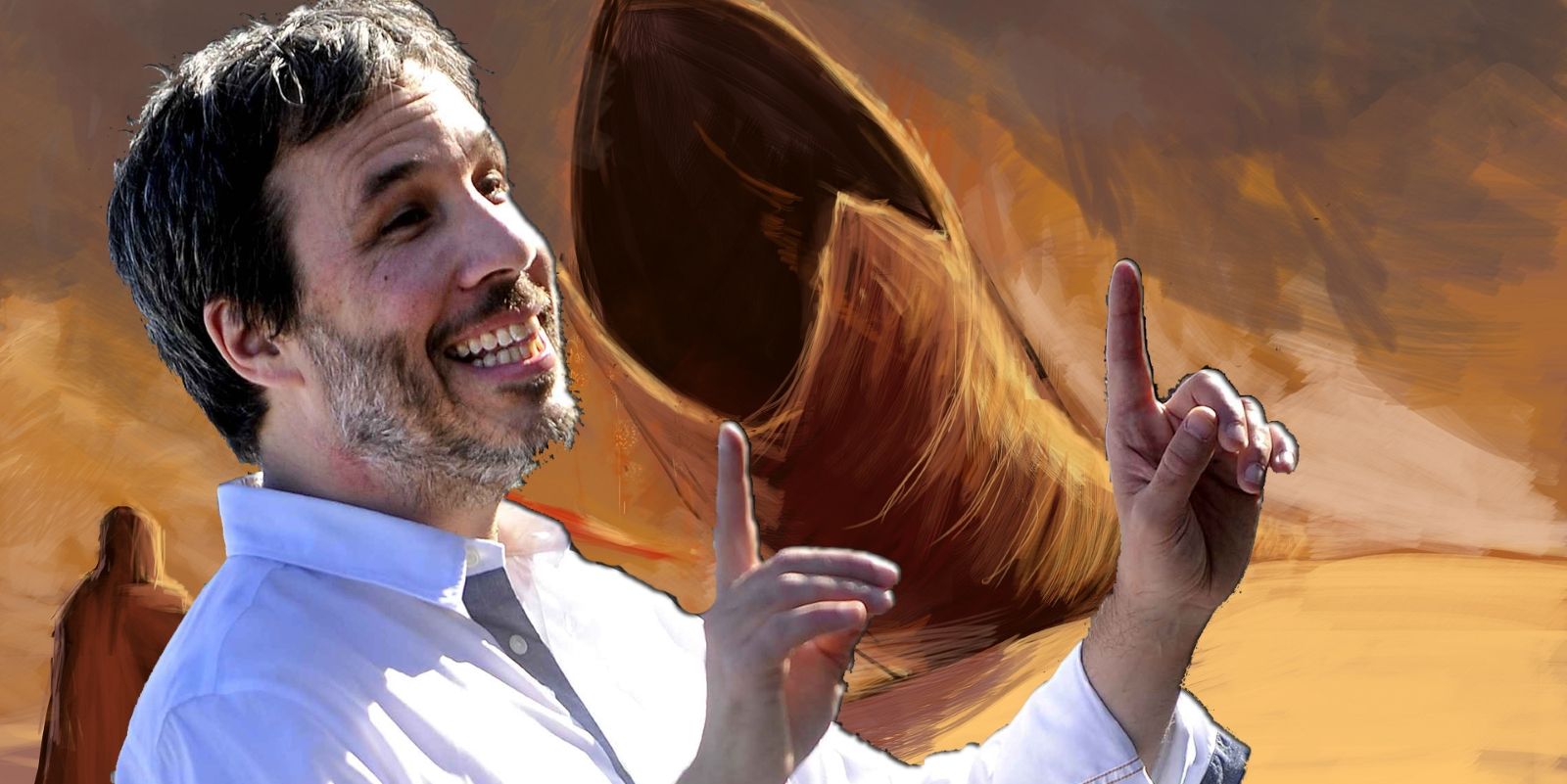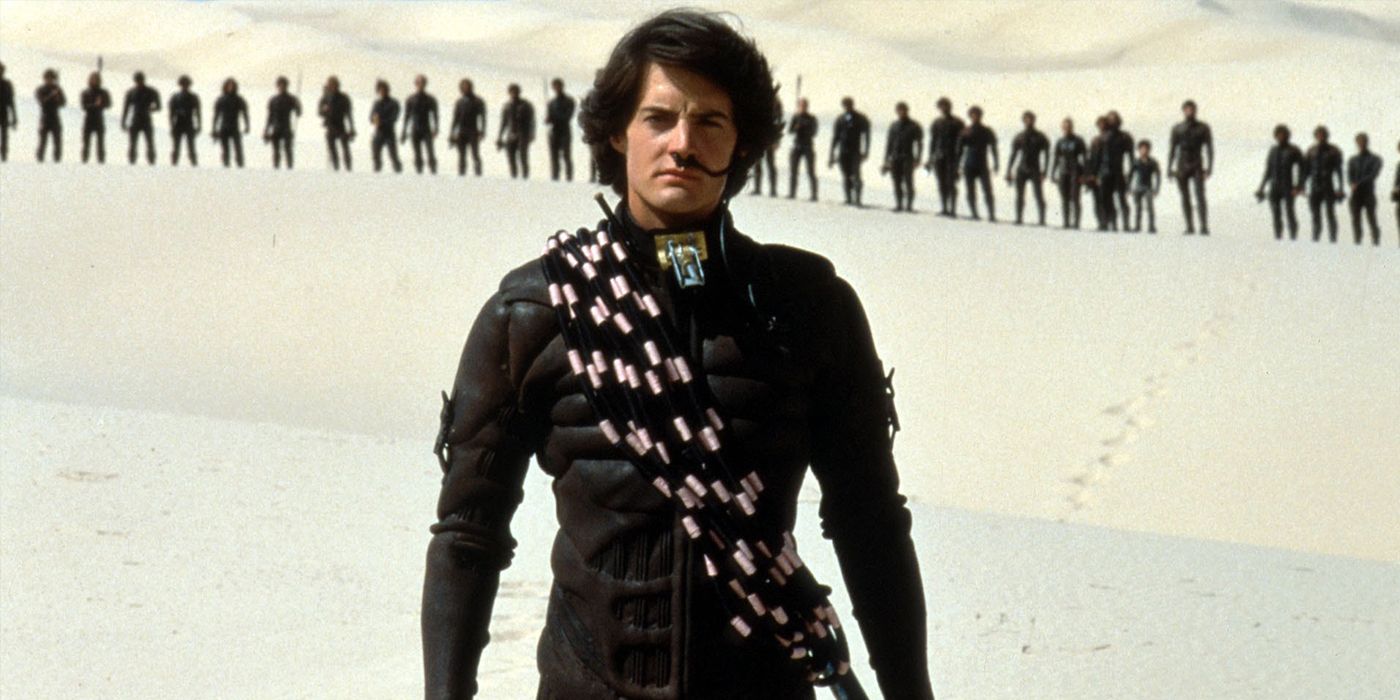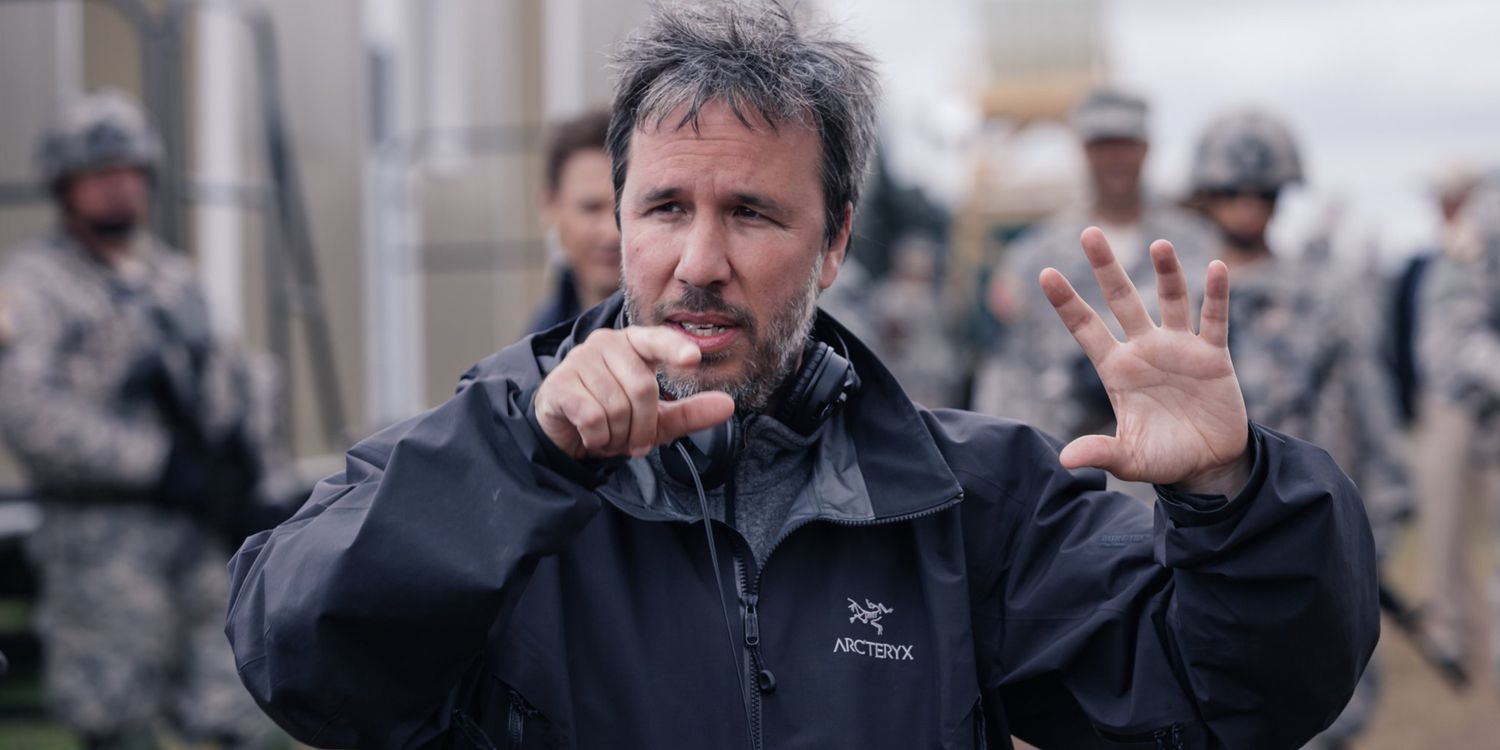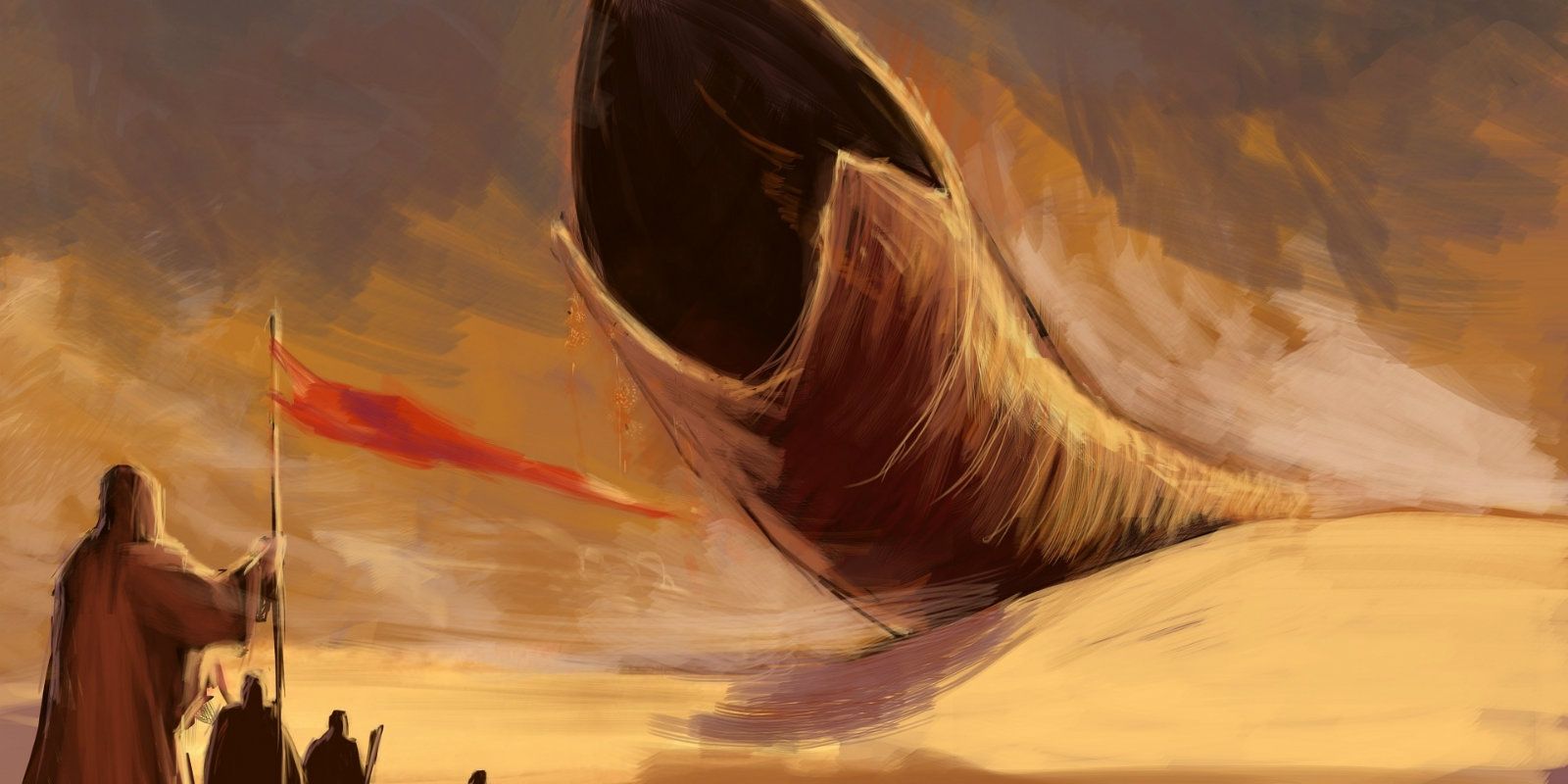Frank Herbert’s sprawling 1965 novel Dune is, without any doubt, a science fiction classic. The book unravels the expansive tale of House Atreides and their interstellar conflict with the scheming, power-hungry House Harkonnen and the powerful Spacing Guild, for control of the planet Arrakis (Dune) and its invaluable spice melange. Filled with tragic characters, political allegories, and imaginative, esoteric themes (especially the all-female religious order, the Bene Gesserit), a definitive film adaption has, arguably, never reached the screen, large or small. Even in this day and age of mo-cap and CGI, the complex novel still offers many visual and narrative challenges for would-be filmmakers.
Several months ago, director Denis Villeneuve (Sicario), admitted that making a Dune film was his dream project. Recently, Legendary Pictures purchased the film and television rights, with plans to create a shared Dune-iverse. Not long after, news outlets reported that the French-Canadian auteur was in talks to helm the vast sci-fi project. Currently Villeneuve is a hot property in Hollywood, so the Blade Runner 2049 helmer could very well land his fantasy flick. But is he the right director to revisit Arrakis?
Dune was originally another filmmaker’s dream gig, Chilean surrealist indie helmer Alejandro Jodorowsky (The Holy Mountain) first set eyes on an adaptation of Herbert's novel in the early 1970s. Along with visual artist H.R. Giger, he created an elaborate, sprawling adaption which stalled out during pre-production. When the project went south, movie mogul Dino de Laurentis purchased the film rights in the mid-70s. Several notable directors expressed interest in the project – with Sir Ridley Scott signed on to direct briefly – before acclaimed cult auteur David Lynch came on board to attempt what many thought impossible, turning Dune into a feature film.
Lynch, in his inimitable style, was able to construct a bizarre and oddly fitting condensation of the original novel for his 1984 iteration. Unfortunately, due to studio meddling, the film wound up uneven, if impressive in scale, and was considered a commercial and critical disaster at the time. The effects of time and nostalgia have been kind to Dune, though, and Lynch's problem child garnered a cult following – with variations of the film circulating, including several ‘director’s cuts’ which extend the film closer to its intended length.
Herbert’s book and its follow ups inspired another take in 2000. This time the Sci-Fi (now SyFy) Channel put together a miniseries, Frank Herbert’s Dune, starring William Hurt, as well as a follow-up in Frank Herbert’s Children of Dune (2003). Both were well-made and acted, but lacked in scale and effects due to the limited made-for-TV budget. In spite of the continued legacy of the Lynch adaption and the well-received TV movies, many Dune disciples feel that Hollywood has yet to adapt a definitive version of the visionary book.
Enter, hypothetically, Denis Villeneuve.
Villeneuve has already proven a capable and stylish auteur with his most recent picture, the savvy sci-fi film, Arrival (not to be confused with the corny Charlie Sheen flick The Arrival). Taut and nuanced, it featured a thoughtful plot and gorgeous visual effects, even if it came up a little emotionally short at times (read our review). The sci-fi potboiler, however, does display the director’s abilities to adapt complex material – since the Ted Chiang short story it's based on, Story of Your Life, varies its authorial voice and shifts tense to evoke the aliens' non-linear existence. Villeneuve effortlessly transformed the stimulating literary material into visual magic, which should give him an edge when it comes to Herbert’s abstruse storyline.
Of course, Villeneuve’s second science fiction contribution, Blade Runner 2049, has yet to make its way to theaters. Nonetheless, the scant scenes released from the follow-up to Ridley Scott’s Cyberpunk archetype have mesmerized viewers, presenting a lush, practical environment which evokes the original without cribbing too much of Scott’s style. Admittedly, a director’s vision only extends as far as their visual effects team and set designers' capabilities, but Villeneuve's other offerings – both sci-fi and otherwise – display his rich visual language which would translate well when bringing Dune to the big screen.
Those who’ve read the original fiction and its successors understand that Frank Herbert’s universe is intricately sketched out with flowing language and inventive concepts. Herbert’s characters are also well-developed for the most part and enjoy genuine, heartfelt connections – especially Paul Atreides (later Muad’Dib) and his Bene Gesserit mother, Jessica, Paul's Fremen paramour Chani, and Duncan Idaho, the Atreides military leader who acts as Paul's surrogate father for much of the saga. Villeneuve may be known in this country for imaginative thrillers, but his earlier works like Incendies (2001), which was nominated for a Foreign Language Academy Award, and the darkly funny Maelstrom both feature well-developed characters and haunting, personal stories, even within unstable environments, such as Incendies’ tumultuous Middle Eastern backdrop or the border war-chaos of Sicario (2015).
His work on Enemy (2014), an inventive, psycho-sexual chiller, which features Jake Gyllenhaal as a man who meets his doppelganger, is another indication of Villeneuve's growth as a director. The picture combined Gyllenhaal's subtle, affecting performance as Adam and his alter ego Anthony with the helmer's keen visual cues, ratcheting up the tension. The sparse yet surreal film managed to handily bounce between genres and explore the internal monologue of identity crises, as well as weaving subtle metaphors for personal and political totalitarianism without drowning audiences in symbolism.
Similarly, his previous film Prisoners (2013) fashioned a shifting morality play, using tightly-wound, believable characters to explore the overall trauma of kidnapping and the grayer areas of vigilantism. Moving from his middle films into his later, larger-budgeted films offers an opportunity to watch Villeneuve's maturation as a director. He's proven his capability to blend style and story without losing sight of either, which will allow him to wrap the family drama at the core of Dune, with its message of salvation and redemption, in the requisite visual dazzle of a galaxy-spanning epic.
Notably influenced by renowned filmmakers like Stanley Kubrick, Ridley Scott, and Alfred Hitchcock, Villeneuve is the ideal choice to kick-start the potentially expansive Dune franchise. His cerebral yet visceral directorial style coupled with his ability to translate complex narratives into motion, sound, and landscapes is perfectly suited for the imaginative, at times convoluted, and always expansive world of Paul Muad'Dib. In addition, his aptitude for characterization and environmental tension, throughout his thriller and science fiction oeuvre especially, will serve Herbert’s classic well.
Hopefully, the negotiations will go smoothly and Villeneuve will land the directorial gig, as well as the opportunity to helm his so-called dream project. With his distinctive style, energy, and scope of vision, along with an appropriately immodest budget at his disposal, Villeneuve is the right director bring the moving and labyrinthine saga to life. All that’s left is finding the perfect cast.




